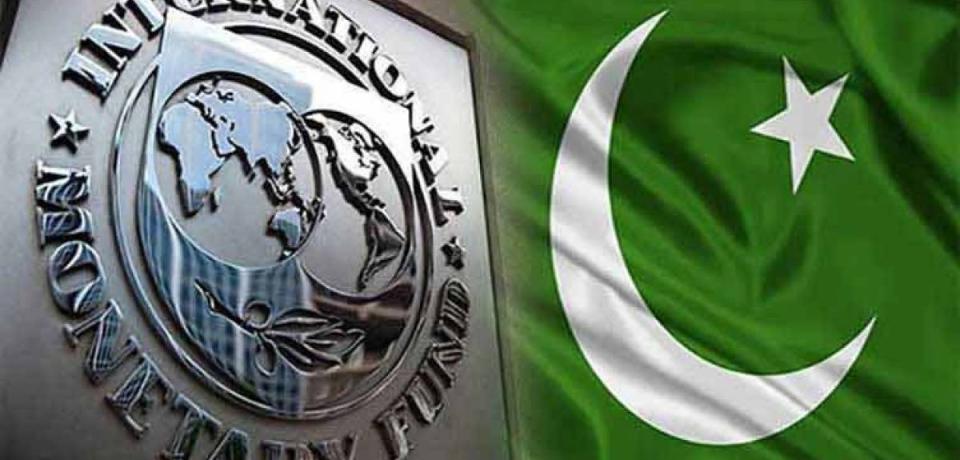
On July 12, 2023, the International Monetary Fund’s Executive Board approved a larger-than-expected conditional loan worth $3 billion for Pakistan. The loan, known as a Stand-By Arrangement (SBA), was hailed as a great victory for Pakistan by the present coalition government led by Prime Minister Shahbaz Sharif. Government spokespersons publicly acknowledged that without the SBA, Pakistan would have faced a default. But the common people have to pay a heavy price for IMF draconian terms and conditions.
On the day the IMF loan was approved, the price of electricity surged by Rs 5 rupees per unit. The Gas department also announced an increase in prices, as it was part of the agreement with the IMF. The implementation of IMF conditionalities for the loan has resulted in an unprecedented price hike across the country.
Moreover, the interest rate has already risen to 21 percent, and numerous public welfare subsidies have been withdrawn. New taxes have been imposed on the property and construction industry, while the Goods and Services Tax (GST) has been raised by one percent. Talks of a new mini-budget are ongoing, which could bring about further waves of taxation. These tax measures predominantly affect ordinary people, as the burden of taxation falls heavily on them. Despite the introduction of a new super tax ranging from 1 to 10 percent on affluent individuals and companies since May 2022, there is currently no effective mechanism in place to collect taxes from the wealthy.
To secure the $3 billion SBA, Pakistan paid $12 billion in external debt servicing during the 2022-2023 financial year. In addition to the IMF loan, Pakistan also received a $2 billion loan from Saudi Arabia and a $1 billion loan from the United Arab Emirates (UAE). These loans have temporarily mitigated the risk of default for Pakistan.
However, for the majority of the population, the state has already defaulted in various aspects. The COVID-19 pandemic led to an increase of 20 million people living below the poverty line, and the recent austerity measures implemented by the government since April 2022 have added another 10 million to that count. While there was a 35% wage increase for public sector employees (who had demanded a 100% increase), no relief was provided to workers in the private sector. According to a conservative estimate by the World Bank, the poverty rate in Pakistan is expected to reach 37.2 percent ($3.65 a day).
The IMF conditionalities imposed on Pakistan may not have parallel examples internationally. The IMF has exerted significant influence over the Pakistani ruling class, requiring them to comply with every demand. This situation is also influenced by the geopolitical dynamics at play, with China being Pakistan’s largest economic partner. Through the Pak China Economic Corridor (CPEC), China has invested over $25 billion, out of a promised $60 billion, in Pakistan, primarily in the form of loans. The IMF feared that Pakistan may utilize the IMF loans to repay the Chinese debts.
Despite last year’s devastating floods resulting in a loss of $30 billion, the strict IMF conditionalities have been enforced without considering these challenges. The government has failed to adequately rehabilitate flood victims, with over 4 million people still residing in roadside camps. Furthermore, the promises made to Pakistan at COP 27, under the “loss and damage agreement,” have yet to materialize.
Although these economic measures may have helped prevent a Sri Lanka-style default, they have significantly eroded the popularity of the present government. Consequently, the former prime minister, Imran Khan, has experienced a surge in popularity, despite having lost a vote of no confidence in 2022. This popularity, however, is waning. The violent reaction, including attacks on military installations, by Imran Khan’s party, the Pakistan Justice Party (PTI), following his brief arrest on May 9, provided a pretext for the military establishment to suppress the PTI. Over 3,000 PTI activists and leaders have been arrested, and military courts have been established to try civilians involved in attacking military installations. Ironically, Imran Khan was brought to power by the military establishment but was subsequently removed when he went out of their control.
The general elections are scheduled for October, but there are concerns of potential postponement. Paradoxically, the present unpopular coalition government, due to the implementation of IMF conditionalities, may still have an advantage in the elections, as it is backed by the military establishment. The alternative option available is fundamentalist religious parties, who, at least in words, maintain opposition to the IMF. These fundamentalist parties may regain popularity similar to their success in 2002 following the 9/11 events. Imran Khan’s PTI, unless disqualified due to corruption allegations and attacks on military installations, is unlikely to achieve the same level of success as in the previous 2018 general elections.
The left-wing parties in Pakistan, presently marginalized, are planning to contest only a few seats. Ali Wazir, the sole socialist member in the National Assembly, has gained prominence through his opposition to the military establishment. However, he has become a target for the powerful military, having spent half of his mandated period behind bars. While he remains popular in his constituency, election rigging may hinder his victory in the upcoming elections.
17 July 2023